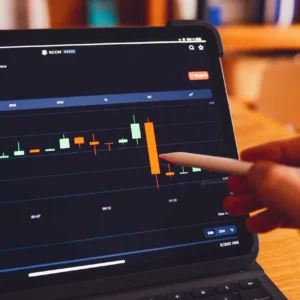Introduction
Trading psychology & discipline are key to long-term success in Forex, Stocks, and Crypto. Without proper emotional control and a structured approach, even the best strategies fail.
In trading, success is not just about strategy, market knowledge, or technical indicators—it’s about mindset and discipline. Many traders fail, not because they lack skill, but because they let emotions like fear, greed, and impatience control their decisions.
A trader’s mindset determines how well they handle wins, losses, volatility, and uncertainty. Those who develop strong emotional discipline and psychological resilience can navigate the markets effectively, avoid impulsive decisions, and stay profitable in the long run.
In this guide, we’ll explore how to build mental discipline, control trading emotions, and develop a strong trading psychology that separates successful traders from those who struggle.
1. Why Trading Psychology Matters
1.1. The Mental Challenges of Trading
Trading is different from traditional jobs. In most careers, hard work = better results. But in trading, working harder doesn’t guarantee success—instead, it’s about making the right decisions consistently.
- Emotional Trading: Letting emotions dictate trades instead of strategy.
- Fear of Losing Money: Hesitating to enter trades or exiting too soon.
- Overtrading: Taking too many trades, often due to greed or revenge trading.
- Lack of Patience: Entering or exiting trades too early, ignoring proper setups.
📌 Did you know? Studies show that 80%+ of traders fail in the first year, primarily due to psychological mistakes, not strategy failure.
💡 Solution: Mastering trading psychology reduces impulsive decisions and ensures long-term consistency.
2. The Biggest Psychological Traps in Trading & How to Overcome Them
2.1. Fear – The #1 Trading Killer
Fear manifests in two main ways:
❌ Fear of Entering a Trade – Traders hesitate to enter good setups, fearing losses.
❌ Fear of Losing Money – Closing trades too soon, missing out on bigger profits.
✅ How to Overcome Fear in Trading
- Follow a Trading Plan: A structured plan eliminates indecision.
- Use Stop-Losses & Risk Management: Knowing your risk before entering helps reduce fear.
- Backtest Your Strategy: Confidence in past performance makes executing trades easier.
- Practice with a Demo Account: Gain experience without financial risk.
📌 Example: If your trading strategy has a 65% win rate, you should not fear a few losses—they are part of the process!
2.2. Greed – Chasing Unrealistic Gains
Greed leads traders to overleverage, ignore risk, or chase the market. Many traders hold positions too long, hoping for extra profit, only to see gains disappear.
✅ How to Control Greed in Trading
- Set Realistic Profit Targets: Have an exit strategy for every trade.
- Use a Take-Profit Order: Locks in profits before the market reverses.
- Follow a Risk-Reward Ratio: Aim for at least 1:2 or 1:3 (Risking $100 to make $200+).
- Avoid Overleveraging: Trading with high leverage (1:500+) increases risks dramatically.
📌 Example: Many traders ignore their exit plan, waiting for more profits. Smart traders exit when their targets are met and move on to the next opportunity.
2.3. Revenge Trading – The Fastest Way to Lose Money
After a big loss, traders often try to win it back immediately, leading to emotional, high-risk trades. This behavior is called revenge trading and is one of the most destructive trading habits.
✅ How to Avoid Revenge Trading
- Accept Losses as Part of the Game: Even the best traders lose trades.
- Take a Break After a Losing Streak: Avoid trading while frustrated.
- Stick to Your Strategy: If the trade setup isn’t there, don’t force it.
- Limit Your Daily Losses: Many professionals stop trading after 2-3 losses in a row.
📌 Example: If you lose $500 in a bad trade, don’t immediately risk another $500 trying to recover it. Take a step back and reassess the market.
3. Developing a Winning Trading Mindset
3.1. Building Patience & Discipline
Patience is one of the hardest skills for traders to develop. Many traders rush into trades out of boredom, leading to unnecessary losses.
✅ How to Build Patience in Trading
- Wait for the Right Setups: The best traders take fewer, higher-quality trades.
- Use a Trading Checklist: Ensure every trade meets strict criteria before execution.
- Practice Delayed Gratification: Learn to wait for proper signals instead of chasing prices.
- Develop a Routine: Successful traders follow a daily schedule, reducing impulsive decisions.
📌 Example: Instead of taking 10 low-quality trades, a patient trader waits for the best 1-2 trades per day.
3.2. Controlling Emotions with a Trading Journal
Keeping a trading journal is one of the best ways to develop discipline. By tracking trades, traders can analyze what works and what doesn’t.
📌 What to Include in a Trading Journal?
- Entry & Exit Points – When and why you entered/exited a trade.
- Market Conditions – What was happening at the time (news, trends, etc.)?
- Emotional State – Were you confident, nervous, or impatient?
- Lessons Learned – What went right or wrong?
💡 Tip: Reviewing past trades prevents repeating mistakes and helps refine your strategy over time.
3.3. Adopting a Professional Trader’s Mindset
The difference between amateur and professional traders is how they handle losing trades.
✅ What Professional Traders Do Differently:
- They accept losses as a normal part of trading.
- They focus on long-term profitability, not daily results.
- They stick to their trading plan, even after losses.
- They avoid emotional trading and follow risk management rules.
📌 Example: If a professional trader loses 3 trades in a row, they don’t panic—they analyze and adjust instead.
4. Practical Steps to Improve Trading Psychology
Step 1: Set Realistic Goals
Instead of: “I want to make $10,000 a month.”
Say: “I want to improve my consistency and risk management.”
Step 2: Follow a Structured Routine
Have set trading hours, market analysis time, and review sessions.
Step 3: Avoid Overtrading
Stick to high-probability trades only.
Step 4: Use Meditation & Stress Management
Techniques like deep breathing, meditation, or exercise can help control emotions.
Step 5: Learn from the Best
Follow successful traders, read books on trading psychology, and always keep learning.
Final Thoughts & Next Steps
Mastering trading psychology is just as important as mastering technical or fundamental analysis. Without discipline, emotional control, and patience, even the best trading strategies will fail.
- Focus on risk management, not just profits.
- Control emotions and avoid impulsive trading.
- Develop patience and wait for high-quality trade setups.
- Use a trading journal to track progress and eliminate bad habits.
🚀 Want to become a more disciplined trader? Start improving your trading mindset today!




